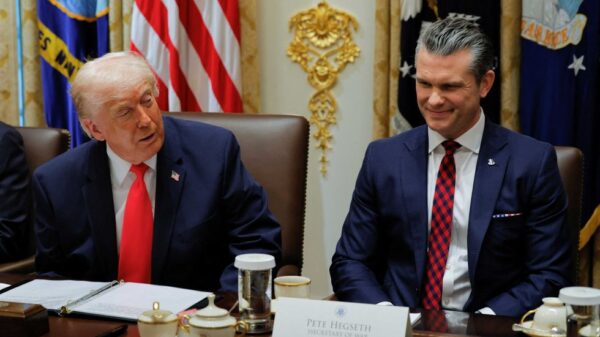The U.S. government is on the brink of a shutdown as Congress approaches an October 1, 2025, deadline for funding negotiations. In an interview on “Face the Nation” with Margaret Brennan, political correspondent Robert Costa reported that President Donald Trump expressed skepticism about avoiding a shutdown, citing a stalemate between both parties.
According to Costa, President Trump indicated that Democrats are focused on extending health care subsidies associated with the Affordable Care Act. Trump, however, is prioritizing policies that prevent undocumented migrants from accessing U.S. health care. He stated, “We’re not going to allow it,” emphasizing that progress on negotiations hinges on Democrats aligning with his administration’s health care objectives.
Costa noted that discussions with top Democratic leaders suggest a compromise is unlikely. Trump conveyed uncertainty about resolving the ongoing tensions, stating, “I just don’t know how we are going to solve this issue.” Sources within the White House suggest that Trump might actually welcome a government shutdown, believing it would grant him the executive power to eliminate what he describes as “waste, fraud and abuse” within government operations. Reports indicate that a memo circulating in Washington discusses potential mass firings if an agreement is not reached.
In addition to the looming shutdown, President Trump has made headlines with remarks concerning potential prosecutions of figures who have scrutinized his administration. In recent days, he publicly called for the prosecution of Adam Schiff, now a senator, and Letitia James, the New York Attorney General, alongside former FBI Director James Comey, who is currently indicted. Although Costa did not discuss these prosecutions directly with Trump during the interview, he gathered insights suggesting that discussions around accountability for these individuals are gaining traction within Trump’s inner circle.
Costa highlighted a growing divide in Washington, with Republicans viewing Trump’s actions as a necessary step toward accountability, while Democrats interpret them as authoritarian tendencies. The tensions surrounding the looming shutdown and potential prosecutions have created significant discord in the political landscape, raising concerns about the future of governance and justice in the United States.
As the deadline approaches, the political climate remains charged, with both sides preparing for a contentious week ahead. The outcomes of these negotiations and the President’s aggressive legal stance could have lasting implications for the political environment in Washington.





































































